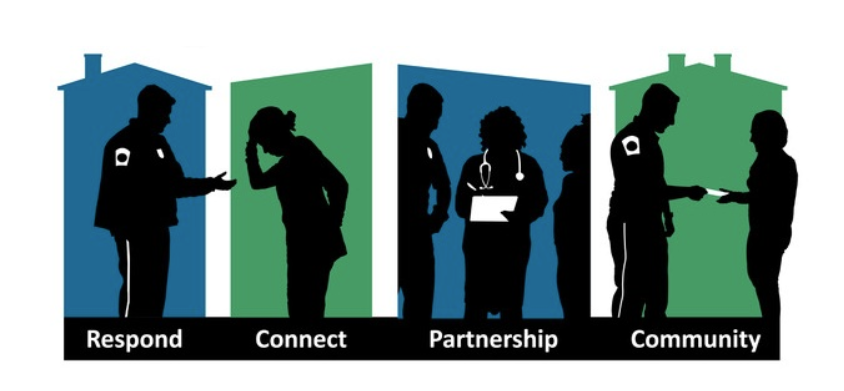 Metro Boston CIT TTAC Launches Website
Metro Boston CIT TTAC Launches Website
Who is Metro Boston CIT TTAC?
The Metro Boston CIT TTAC has worked with communities gathering and actively analyzing empirical data to inform best practice. These best practice approaches have identified strategies for departments to access community supports and increase collaboration with other state funded programs.
Examples include increased utilization of Emergency Service Programs, development of HUB and case conference models, identification of grants and other funding sources to support expansion of resources.
SPD has a long history of engagement with stakeholder meetings that evolved into groundbreaking strategy to expand the Jail Diversion Program into a civilian unit – Community Outreach Help and Recovery Unit (COHR). COHR is staffed by Licensed Clinical Social Workers, Mental Health Counselors, Drug and Alcohol Counselors, Recovery Coaches and a Coordinator of Law Enforcement Partnerships who all work to provide in-house resources for residents in addition to assisting officers in informing response. Integrating a public health and public safety response has demonstrated the need for partnerships across the criminal justice system. Courts, probation, and the District Attorney’s office all work together to assess and identify individuals and cases that would be more appropriately diverted to the health care system. In addition to system impact these initiatives are also improving outcomes for individuals and families.
POLICE CIT TRAINING
CIT Training is a 40 hour course comprised around five key themes: Increased Understanding of Behavioral Health, Effective Communication and engagement skills, Verbal and Tactical De-escalation, Navigating Community Resources, and Risk assessment tools. Officers who have completed this training learn to understand commons signs and symptoms of mental illness and recognize them in crisis situations. They are also equipped with the knowledge and skills to guide best practice response to individuals impacted by psychiatric illness, developmental disorders, and co-occurring substance use disorders. Additionally, CIT training is tactically sound. Police training related to officer and public safety is always paramount. Officers who have attended the training have shared how they utilize skills learned in CIT training on the job daily.
The 40 hour course is designed for patrol officers who have regular interactions with community members experiencing a crisis. However, variations of CIT training and its components are available and recommended for all levels of law enforcement: Dispatchers, Officers and Supervisors.
Since launching their website November 22nd, they hope more police officers will take the opportunity to register and become CIT certified officers.
To learn more about the program or to register for CIT Training, please vist: metrobostoncit.org.